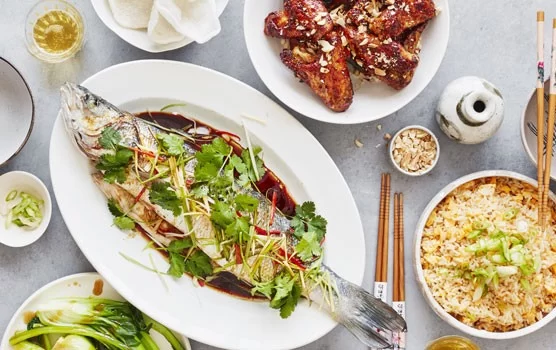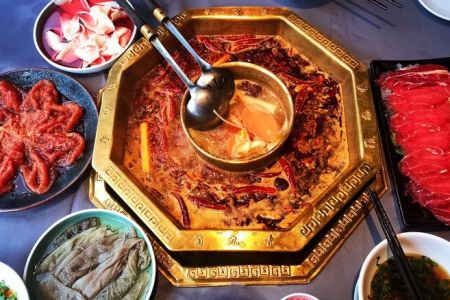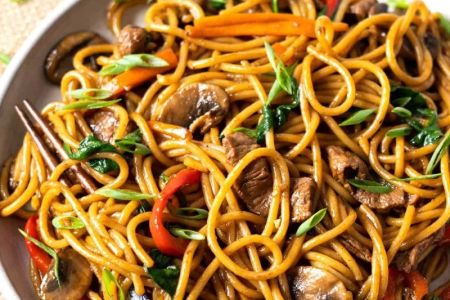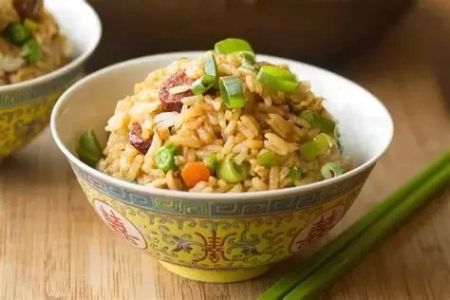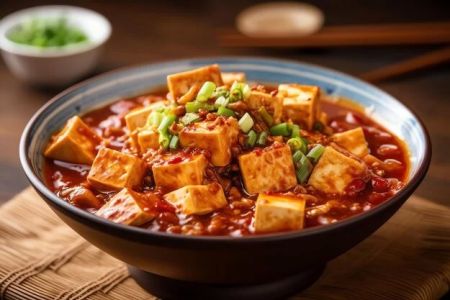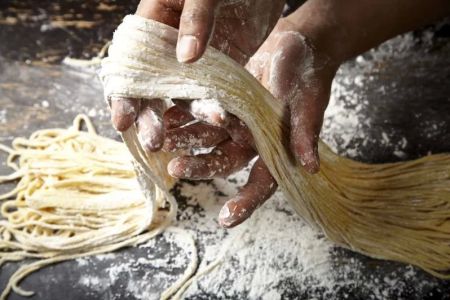Understanding the Essentials of Chinese Cooking
Chinese cuisine, known for its rich flavors and variety, is enjoyed by millions around the world. But for many home cooks, creating these delicious dishes can feel like a daunting task. The good news is, with a few essential tips and techniques, you can easily replicate authentic Chinese food right in your own kitchen. This guide offers helpful tips for cooking Chinese food at home, whether you’re a beginner or someone looking to perfect your skills.
The Importance of Wok Cooking
When it comes to Chinese food, the wok is an essential tool. This versatile cooking pan allows you to stir-fry, deep-fry, and steam, making it perfect for a wide variety of dishes. Wok cooking is key to achieving that signature smoky flavor and texture found in many Chinese recipes. If you're cooking stir-fry dishes like Kung Pao chicken or beef with broccoli, make sure you use a wok for the best results. Don’t worry if you don’t have a traditional carbon-steel wok—non-stick versions also work well for beginners.
Ingredients Matter: The Building Blocks of Chinese Cuisine
Before diving into cooking, it’s crucial to understand the foundational ingredients that define Chinese cuisine. Some of the most common ingredients include soy sauce, sesame oil, rice vinegar, oyster sauce, and five-spice powder. These ingredients bring out the unique flavors in each dish and help you recreate the authentic taste of Chinese food. For those living in the U.S., Chinese grocery stores or even well-stocked supermarkets often carry these ingredients, so they’re easy to find.
Key Cooking Techniques Every Home Cook Should Know
Chinese cooking isn’t just about throwing ingredients together; it's a precise and thoughtful process. Here are some essential techniques to help you improve your cooking:
Stir-Frying: Quick and Flavorful
Stir-frying is the cornerstone of Chinese cooking. This technique involves cooking ingredients quickly over high heat, ensuring they remain crisp and retain their natural flavor. To master stir-frying, it’s essential to have all your ingredients prepared and ready to go before you start cooking. You should use high-smoke-point oils, like vegetable oil or peanut oil, to avoid burning the ingredients. When stir-frying, add ingredients in stages, starting with the ones that take the longest to cook, such as meat, and finish with the quickest, like vegetables.
Steaming: A Healthy Cooking Method
Steaming is another common technique in Chinese cuisine. It’s an incredibly healthy way of cooking that preserves the nutrients and natural flavors of the ingredients. Steamed dishes such as dumplings and fish are staples in Chinese households. To steam food, you’ll need a steaming basket or a bamboo steamer, which is ideal for creating a delicate texture in your dishes. For the best results, make sure the water in your steamer doesn’t touch the food, and always allow the steam to flow freely to cook the food evenly.
Deep-Frying: Crispy and Delicious
Deep-frying is another popular technique, used for creating crispy, golden-brown textures in Chinese dishes like egg rolls and sweet and sour chicken. To achieve the perfect crispness, use a high-smoke-point oil like vegetable oil, and make sure the oil is hot enough before adding food—ideally around 350°F (175°C). For extra crunch, dip your ingredients in a batter or cornstarch before frying. Once fried, drain excess oil by placing the food on paper towels.
Popular Chinese Dishes You Can Try at Home
One of the best ways to learn Chinese cooking is by trying some of the most popular dishes at home. Here are some recipes you can start with:
General Tso’s Chicken
This American-Chinese favorite is perfect for beginners. It combines deep-fried chicken pieces with a tangy, sweet sauce made from soy sauce, vinegar, sugar, and garlic. It’s easy to make, and the balance of flavors is what makes it a standout dish in Chinese-American restaurants.
Beef and Broccoli Stir-Fry
Beef and broccoli stir-fry is a classic Chinese dish that’s easy to prepare. The beef is sliced thin and quickly stir-fried with broccoli and a savory sauce. The key to making this dish stand out is to marinate the beef with soy sauce, oyster sauce, and cornstarch, which gives it a smooth texture and rich flavor.
Hot and Sour Soup
Hot and sour soup is a warming dish that combines spicy and tangy flavors. Made with ingredients like bamboo shoots, tofu, mushrooms, and pork, it’s a comforting soup that’s perfect for cooler weather. Don’t forget to balance the sourness and spice by adjusting the vinegar and white pepper to suit your taste.
Pro Tips for Success in Chinese Cooking
While Chinese cooking is an art, there are a few pro tips that can help elevate your dishes:
Tip #1: Prepare Ingredients Ahead of Time
Chinese cooking requires a lot of prep work. It’s always a good idea to have all your ingredients chopped, marinated, and ready to go before you start cooking. This way, you can work quickly when it’s time to stir-fry or steam the dish.
Tip #2: Invest in Quality Ingredients
The key to creating authentic Chinese dishes is using fresh, high-quality ingredients. From fresh vegetables to premium soy sauce, don’t skimp on your ingredients. Your dishes will taste much better when you use the best products available.
Tip #3: Master the Heat
Chinese cooking often involves high heat, especially for stir-frying and deep-frying. You’ll need to master the art of cooking at high temperatures without burning the ingredients. It may take a little practice, but once you get the hang of it, your cooking will improve dramatically.
Tip #4: Taste as You Go
One of the best ways to ensure your Chinese dishes turn out perfectly is by tasting them as you cook. This allows you to adjust the seasoning and balance flavors along the way. Chinese food is all about harmony, so pay attention to the flavors and adjust accordingly.
Common Mistakes to Avoid in Chinese Cooking
Even experienced cooks make mistakes. Here are a few common errors to watch out for:
Overcrowding the Pan
When stir-frying, don’t overcrowd the pan. If you put too many ingredients in at once, they’ll steam instead of fry. This can result in soggy dishes, which is not what you want when trying to replicate the crispness of Chinese food.
Using the Wrong Oils
Always choose the right oil for cooking. Olive oil, for example, is not ideal for stir-frying. Instead, use oils with a high smoke point, such as peanut oil or vegetable oil, to ensure your food cooks properly and doesn’t burn.
Forgetting to Marinate
Marinating meats and vegetables is a crucial step in Chinese cooking. A good marinade helps to tenderize the ingredients and adds layers of flavor. Don’t skip this step—it’s essential for achieving the right taste.
Bringing It All Together: A Journey into Chinese Cuisine
Chinese food is a journey of discovery, and there’s always something new to learn. Whether you’re cooking your favorite takeout dish at home or exploring new recipes, the key is to experiment, have fun, and embrace the rich traditions of Chinese cooking. With these tips and techniques, you’ll be well on your way to mastering the art of Chinese cuisine right in your own kitchen.


